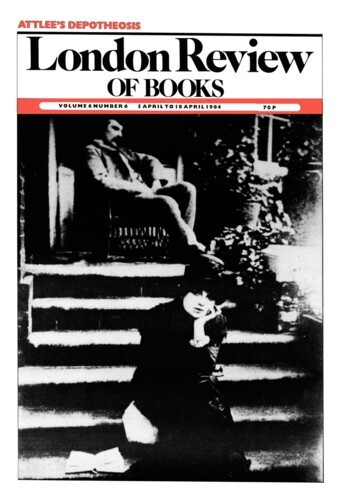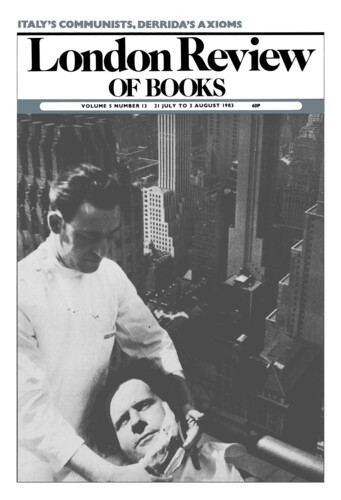William Lamont
William Lamont most recent book, written with Christopher Hill and Barry Reay, is The World of the Muggletonians. He is Dean of the School of Cultural and Community Studies at the University of Sussex and a professor of history there.
All Sound Christians
21 July 1983
The Great Fear
William Lamont, 21 July 1983
We shall know more about the origins of the English Civil War when we know more about English Puritans. This seems, on the face of it, an absurd proposition. From S.R. Gardiner’s confident description of the Great Rebellion as ‘the Puritan Revolution’ downwards, we have not lacked studies which linked Protestant religious attitudes to the coming of the Civil War. Titles such as Woodhouse’s Puritanism and Liberty or Haller’s Liberty and Reformation in the Puritan Revolution pay homage to this tradition. Gardiner, Woodhouse and Haller, in different ways, were showing how Protestant ideals influenced the middle-class constitutionalism of Opposition MPs. Michael Walzer went further in his Revolution of the Saints by arguing that Calvinism was a modernising ideology. With breathtaking audacity, he leapt from case-studies of Marian exiles to New Model soldiers belting out battle hymns, in pursuit of his thesis that revolutionary dogma was to be found in mainstream English Puritanism and not (as was often supposed) merely in a sectarian lunatic fringe. There was no danger in any of these studies of the religious dimension being squeezed out of an explanation of the origins of the English Civil War.
Pieces about William Lamont in the LRB
Five Feet Tall in His Socks: Farewell to the Muggletonians
Patrick Collinson, 5 June 2008
It is said that when representatives of the Society of Friends came to Buckingham Palace in 1945 to present a loyal address at the end of World War Two, the king asked who these people were....
Rescuing the bishops
Blair Worden, 21 April 1983
The publication of Patrick Collinson’s The Religion of Protestants is a stirring event in the rediscovery of Early Modern England. Unmistakably the work of a historian who has reflected on...
Read anywhere with the London Review of Books app, available now from the App Store for Apple devices, Google Play for Android devices and Amazon for your Kindle Fire.
Sign up to our newsletter
For highlights from the latest issue, our archive and the blog, as well as news, events and exclusive promotions.


